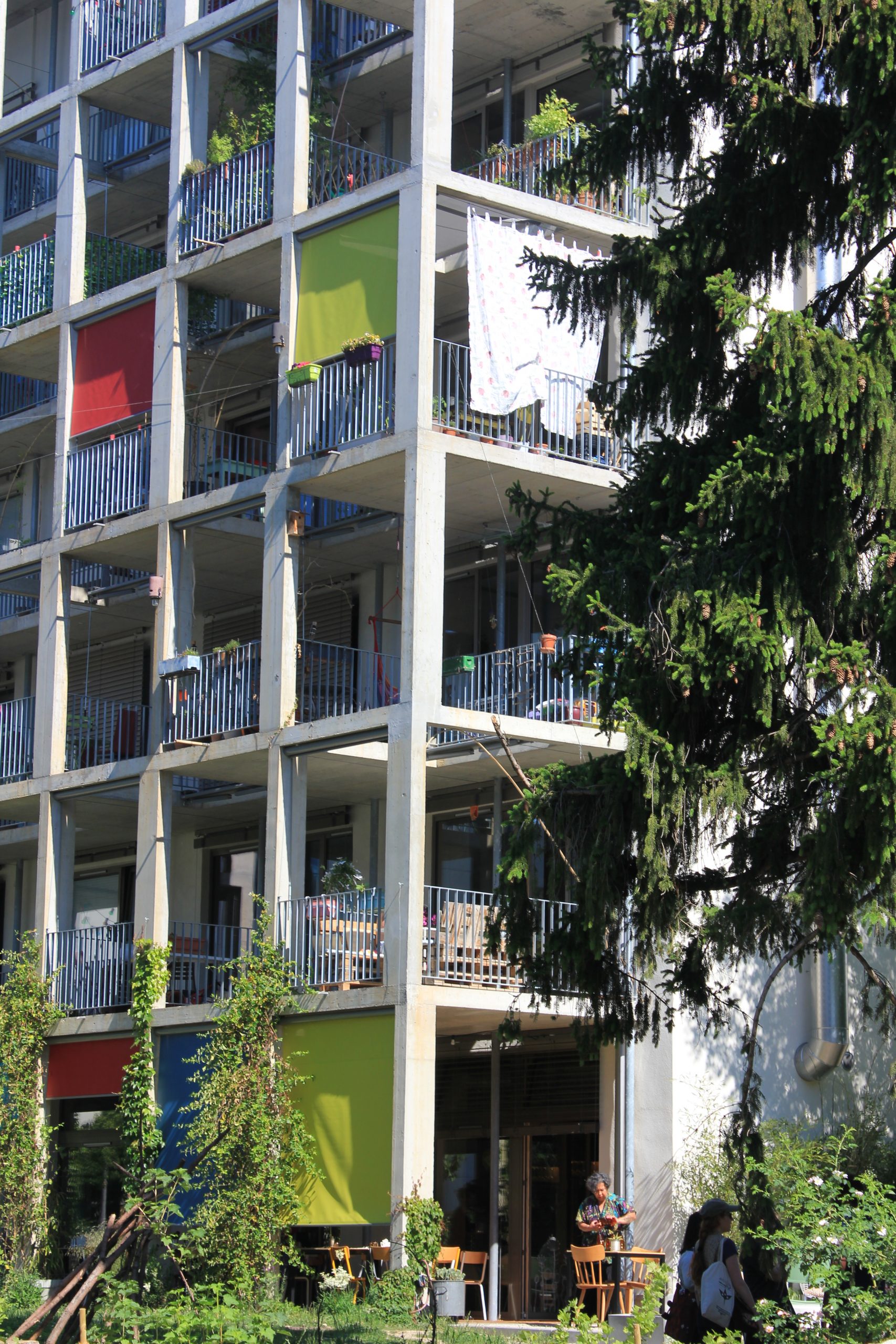A look at some of the housing co-ops around the world which are working to tackle climate change
Residential buildings have a key role to play in tackling the climate crisis, not only due to their carbon footprint but also their considerable mitigation potential.
The World Green Building Council estimates that around 30% of global carbon emissions come from the energy used to heat, cool and light buildings. In the EU alone households represented 26% of final energy consumption in 2019, according to Eurostat.
One of the commitments made through the Paris Agreement was avoiding 77% in total CO2 emissions in the buildings sector by 2050 compared to the 2015 levels. Several housing co-ops have taken the lead on the issue by pioneering green solutions. In Geneva, Switzerland, Equilibre Housing Co-op is actively trying to lower its environmental footprint by using straw bale insulation and solar panels. A renewable, naturally occurring material, straw is also an excellent insulator. Straw panels are very light and can be 120+ minute fireproof.
The co-op also runs a sewage water recycling system. Big tanks of 26,000 litres are used to store rainwater, which is then used for toilets. Co-operative housing is a popular option in Switzerland – in Zurich 18% of dwellings are housing co-operatives. Switzerland has a total of 2,000 housing co-ops, which provide 5% of the Swiss housing stock.
Straw insulation was also used by the Chamarel les Barges Coop in Lyon, a housing co-op set up by senior citizens. The co-op’s four-story building includes 14 one-bedroom apartments of 45 m², two two-bedroom apartments of 63 m², as well as public spaces on the ground floor, including two guest bedrooms, a common room with a kitchen, a workshop, a laundry room and an office. The apartments were designed to be functional for people as they age.
A similar approach was adopted by Sundance Cooperative Housing in Edmonton, Canada, which is currently undertaking a Deep Energy Retrofit Project. Construction is currently underway at the co-op’s Riverdale neighbourhood in Edmonton with the objective to retrofit buildings to net-zero carbon standards with a minimum amount of construction waste. As part of this, the 59 townhouse units will be encased in dense-pack cellulose while insulation made from recycled newspapers will be used into spaces between new panels and old building structures. The homes will also use green energy, including solar energy.Advertisement
Set up in 1978, Sundance has 78 homes include 59 town homes, 10 duplex units and a nine suite seniors apartment. The CA$7.6m project is partly funded via under the Green Infrastructure Phase II – Energy Efficient Buildings RD&D Program Natural Resources Canada, which will cover CA$2.5m dollars of the construction cost.
Other Canadian co-ops are rising up to the climate challenge as well. The Co-operative Housing Federation of Canada, which includes 900 housing co‑ops across Canada, runs a Greener Co-op Microgrant programme through which it allocates grants to housing co-ops for sustainability initiatives. Projects target reducing energy and water consumption, increasing food security and enabling active transportation, among others. The programme allocated a total of CAD$130,000 to 30 co-ops across Canada this year and has won a Sustainability Award from the Canadian Housing Renewal Association.
In New Zealand the Peterborough Housing Co-operative in inner-city Otautahi (Christchurch) comprises 14 townhouses around a huge central courtyard, with a neighbourhood house. Set up in 1982, the co-op rebuilt its houses in the aftermath of the 2011 earthquake. The co-op took this opportunity to rebuild as a purpose designed pocket neighbourhood featuring warm houses that sustain around 16 – 20 degrees unheated due to 140mm wall studs, wool insulation, row housing, large north facing windows onto concrete slab, and thermally broken double glazing. The buildings have central hot water and under floor heating systems powered by heat pumps and boosted by solar panels.

Another housing co-op to have recently embarked on a renewables journey is Riverton Community Housing in Minneapolis, USA, which provides accessible, affordable student housing. Riverton, which owns the properties that are operated independently by its member co-ops, has recently installed solar panel systems to provide clean energy on-site.
Riverton expects 400kW of rooftop solar arrays to offset 450,000kWh for the first year of energy production. In the longer term, the 25-year projected environmental benefits equate to over 7,000 metric tons of CO2 offset, which is equivalent to displacing 7,000,000 pounds of burned coal, planting 190,000 trees, or taking 1,500 gasoline-driven passenger vehicles off the road for a full year.
“The Riverton housing co-operatives have always had a concern for the communities in which they are located and the environment around them. Our co-op members and staff are always looking for ways to reduce our environmental footprint,” said Mary Novak, executive director to Riverton Community Housing. “Adding solar to our buildings was not only the right thing to do, but was a fairly easy process with our project partners. We hope other multi-family owners will learn about the process and do the same thing.”
Some housing co-ops are also investing in research to determine what are the best climate-friendly options. HSB Sweden, a co-operative housing association with 624,000 members runs a Living Lab on the Chalmers campus in Gothenburg, where students and researchers are trying different products and materials and are testing different ways of living. HSB hopes to use the results from research in the HSB production of homes, pioneering innovative solutions to climate challenges.
The role of housing co-operatives in pioneering climate friendly alternatives will also be explored at the ICA World Cooperative Congress in in Seoul, during a session moderated by Alexandra Wilson, Retired CEO of The Agency for Co-operative Housing and ICA board director from Canada.
Anna Voinea, The Co-op News
